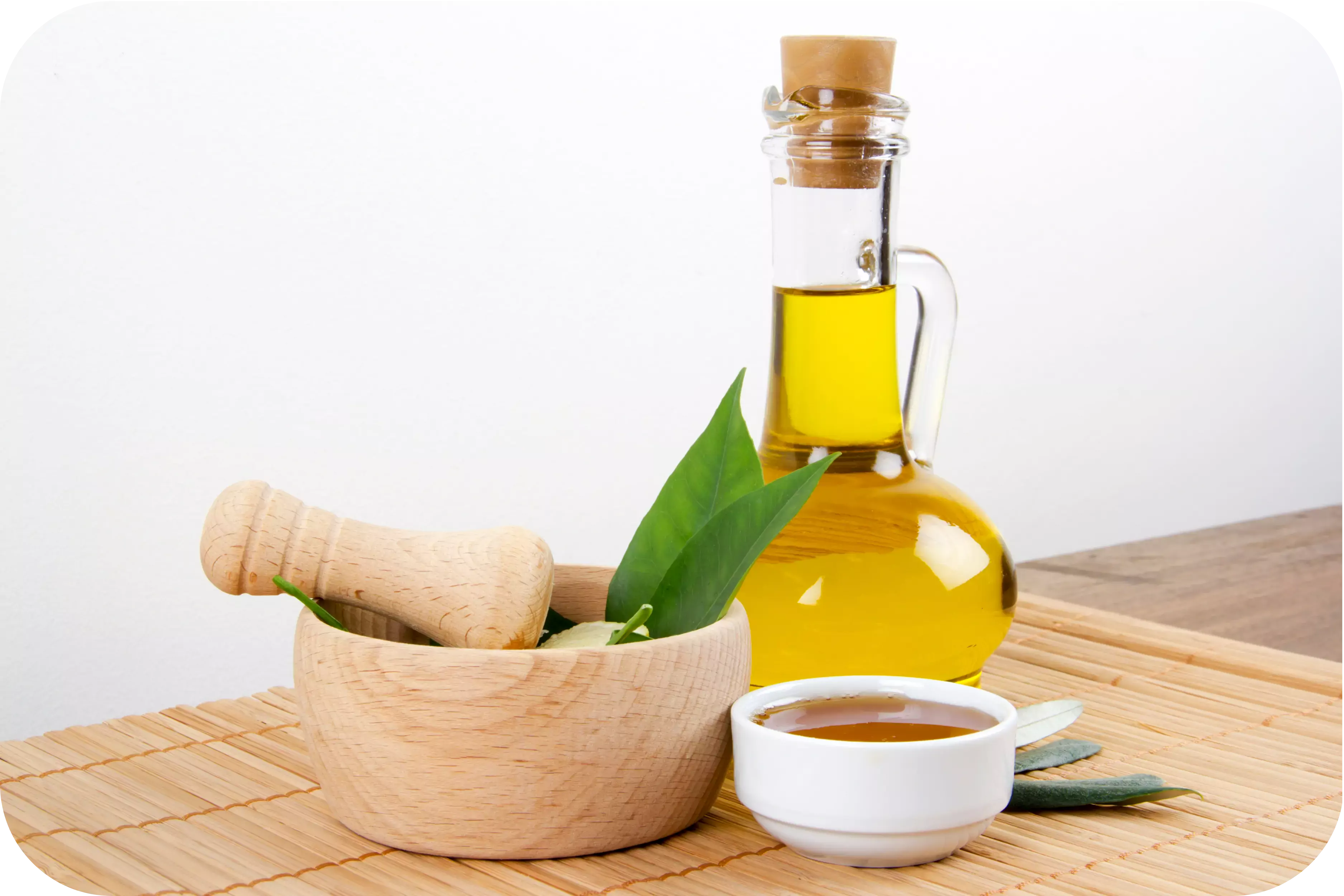7 Islamic Products for Your Health and Wellness
7 Islamic Products for Your Health and Wellness

If you've grown up in a Muslim family or been around Muslims, you've probably heard about certain products praised for their benefits.
In this blog post, we're excited to share a curated list of products that not only reflect Islamic values but also promote good health. Let's explore how these items can make a difference in your well-being while staying true to our faith.
1. Miswak
The Miswak, or Siwak, holds a special place in Islamic tradition as a natural tooth-cleaning tool recommended by the Prophet Muhammad (peace be upon him). It's not just a stick; it's a symbol of purity and cleanliness in Islam. Prophet Muhammad (peace be upon him) said:
"The toothstick is cleansing for the mouth and pleasing to the Lord."
(Sahih Al-Bukhari,887)
Made from the Salvadora Persica tree, the Miswak is more than just a toothbrush; it's a holistic dental care solution. Its natural bristles and antibacterial properties help remove plaque, freshen breath, and promote gum health. Using the Miswak is not only a practical act of hygiene but also a spiritual practice, aligning with the Sunnah of maintaining oral cleanliness.
2. Honey
Honey is often referred to as the "blessed" or "healing" food in Islam, with numerous mentions in the Quran and Hadith. In Surah an-Nahl, Allah says:
"And thy Lord taught the Bee to build its cells in hills, on trees, and in (men's) habitations; then to eat of all the produce (of the earth), and find with skill the spacious paths of its Lord: there issues from within their bodies a drink of varying colors, wherein is healing for men: verily in this is a Sign for those who give thought."
(Surah an-Nahl, verse 69)
Prophet Muhammad (peace be upon him) also praised honey for its healing properties, saying:
"Make use of the two remedies: honey and the Quran."
(Sunan Ibn Majah, 3457)
Honey is rich in antioxidants, antibacterial properties, and essential nutrients, making it a valuable addition to a healthy diet. It's not only a delicious natural sweetener but also a source of medicinal benefits, promoting overall well-being and serving as a reminder of Allah's blessings in everyday life.
3. Black Seed Oil
Black seed oil, also known as "habbatus sauda" or "black cumin seed oil," holds a special place in Islamic tradition for its health benefits. The Prophet Muhammad (peace be upon him) said:
"Hold onto the use of the black seed for indeed it has a remedy for every disease except death."
(Sahih Bukhari, 5688)
This oil is extracted from the seeds of the Nigella sativa plant and has been used for centuries in traditional medicine for its various therapeutic properties. It contains thymoquinone, a compound with antioxidant, anti-inflammatory, and antimicrobial properties.
Black seed oil supports immune function, promotes digestive health, and alleviates symptoms of respiratory conditions like asthma and allergies. Incorporating black seed oil into your daily routine can be a beneficial way to enhance overall health and well-being, while also honoring a tradition deeply rooted in Islamic teachings.
4. Zamzam Water
Zamzam water holds a special significance in Islam, revered by Muslims around the world for its spiritual and healing properties. According to Islamic tradition, Zamzam water originated from the miraculous well in the city of Mecca, near the Kaaba, and is considered blessed and pure.
Drinking Zamzam water is believed to bring spiritual blessings and physical well-being to believers. Many Muslims drink Zamzam water during their pilgrimage to Mecca (Hajj) and throughout the year as a means of seeking Allah's blessings and protection.
Moreover, Zamzam water is often used for supplication (dua) and as a means of seeking Allah's mercy and forgiveness. Muslims believe that drinking Zamzam water with sincere intention can bring about spiritual purification and blessings in this life and the hereafter.
5. Olive Oil
Olive oil holds a special place in Islamic culture and tradition, with numerous references to its benefits found in the Quran and Hadith. Known for its healthful properties and culinary versatility, olive oil is widely used in Islamic cuisine and daily rituals.
In Islamic tradition, olive oil is regarded as a symbol of purity, goodness, and divine blessings. The Quran mentions olive trees as a source of light and guidance, highlighting their spiritual significance. Additionally, the Prophet Muhammad (peace be upon him) praised the virtues of olive oil and encouraged its consumption for its healthful benefits.
Olive oil is not only revered for its culinary uses but also for its potential medicinal and cosmetic applications. From promoting cardiovascular health to nourishing the skin and hair, olive oil is celebrated for its multifaceted benefits and is often referred to as "liquid gold" in Islamic culture.
6. Dates
Dates hold a special place in Islamic tradition and are revered as a blessed fruit with numerous spiritual and health benefits. Mentioned multiple times in the Quran and Hadith, dates are often associated with blessings, sustenance, and hospitality in Islamic culture.
During the month of Ramadan, Muslims break their fast with dates and water, following the tradition of the Prophet Muhammad (peace be upon him). Dates provide a quick source of energy and essential nutrients after a day of fasting and are believed to have been the Prophet's preferred choice for breaking fast.
Apart from their significance in Ramadan, dates are consumed year-round by Muslims as a wholesome and nutritious food. Rich in vitamins, minerals, and natural sugars, dates are known for their energy-boosting properties and are often enjoyed as a healthy snack or added to various dishes and desserts.
7. Attar
Attar, also known as itr or perfume oil, holds a cherished place in Islamic culture and tradition, symbolizing beauty, purity, and spiritual elevation. Derived from natural botanical sources such as flowers, herbs, and spices, attar is prized for its exquisite fragrances and therapeutic properties.
Attar is not only valued for its aromatic qualities but also for its potential health benefits. Many traditional attars are believed to have therapeutic effects, such as promoting relaxation, relieving stress, and enhancing mood. Additionally, attar is often used in spiritual practices, such as dhikr (remembrance of Allah), meditation, and prayer, to create a sacred atmosphere and heighten spiritual awareness.
Whether it's the delicate scent of rose, the refreshing aroma of citrus, or the earthy fragrance of oud, attar offers a sensory journey that transcends the mundane and connects the wearer to the divine. In Islamic culture, attar is more than just a fragrance; it's a reflection of one's inner beauty, piety, and devotion to Allah.
Conclusion
As we wrap up our discussion on products that align with Islamic tradition and values, we hope you've found some valuable additions to your daily routine. From the natural benefits of Miswak to the spiritual significance of Zamzam Water, each item carries a special meaning in the Islamic context.
If you're interested in exploring these products further, consider checking out Riwaya. Our platform offers a handpicked selection of items that celebrate Islamic culture and heritage.
Selling at Riwaya
Are you a creator or seller of products that celebrate Islamic culture and tradition?
Join Riwaya's marketplace and connect with a global audience of discerning shoppers who value quality, authenticity, and spirituality.
Let your products become a part of the rich tapestry of Islamic heritage and inspire others on their journey of faith.
FAQs
Q1: What are the health benefits of Miswak?
Miswak is a teeth-cleaning twig made from the Salvadora persica tree. It is highly recommended in Islam for oral hygiene and is believed to have numerous health benefits, including dental care, freshening breath, and promoting overall oral health.
Q2: What are the health benefits of honey?
Honey is praised in Islam for its various health benefits, including boosting immunity, aiding digestion, soothing sore throats, promoting wound healing, and providing natural energy. It is considered a Sunnah food with medicinal properties.
Q3: What are the health benefits of olive oil?
Olive oil is recommended in Islam for its health-promoting properties, including heart health, skin care, and overall well-being. It can be used for cooking, salad dressings, skin moisturizing, and hair care, following the Sunnah of the Prophet Muhammad (peace be upon him).



